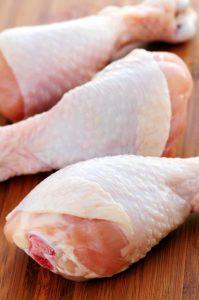The Food Standards Agency (FSA) is making changes to its campylobacter retail survey of fresh shop-bought UK-produced chickens.

Following discussions with the industry on an FSA initiative, the top nine retailers have agreed to publish their own campylobacter results on their consumer websites.
The sampling and analyses carried out by the retailers will be in accordance with ‘robust protocols’ established by the FSA that will also ensure that their published results are comparable. In addition, the FSA will have access to the raw data from each retailer in order to verify the samples and to determine industry averages.
The FSA said that it “reserves the right to comment publically on the results. Each retailer has committed in writing to follow the protocol.
“As a result of this arrangement, the nine major retailers will not now be included in our annual survey but consumers will be able to follow the retailers’ ongoing commitment to campylobacter reduction.”
In light of the significant progress made by the major retailers and producers in taking action to reduce campylobacter levels in their chicken, the FSA’s strategy is now to ‘focus effort on smaller establishments where it feels further improvements could be made’.
The increased focus on these suppliers will allow the improvements made by the larger chains to be extended across the whole supply chain. The focus for the fourth year of the retail survey will therefore be on smaller retailers, independent traders and market stalls as these are ‘more likely to be supplied by smaller processors’.
The FSA stated: “We will now move to encouraging and working with smaller processors who generally have not made the same level of improvements to their processing lines as the bigger chains. Although these plants account for a smaller share of the market, many supply products into catering and local retailers.
“We remain committed to reducing the levels of campylobacter on all UK produced chickens, and we will be monitoring the larger retailers’ results very closely to ensure they continue to show action is being taken to tackle campylobacter.”
This story was originally published on a previous version of the Meat Management website and so there may be some missing images and formatting issues.















